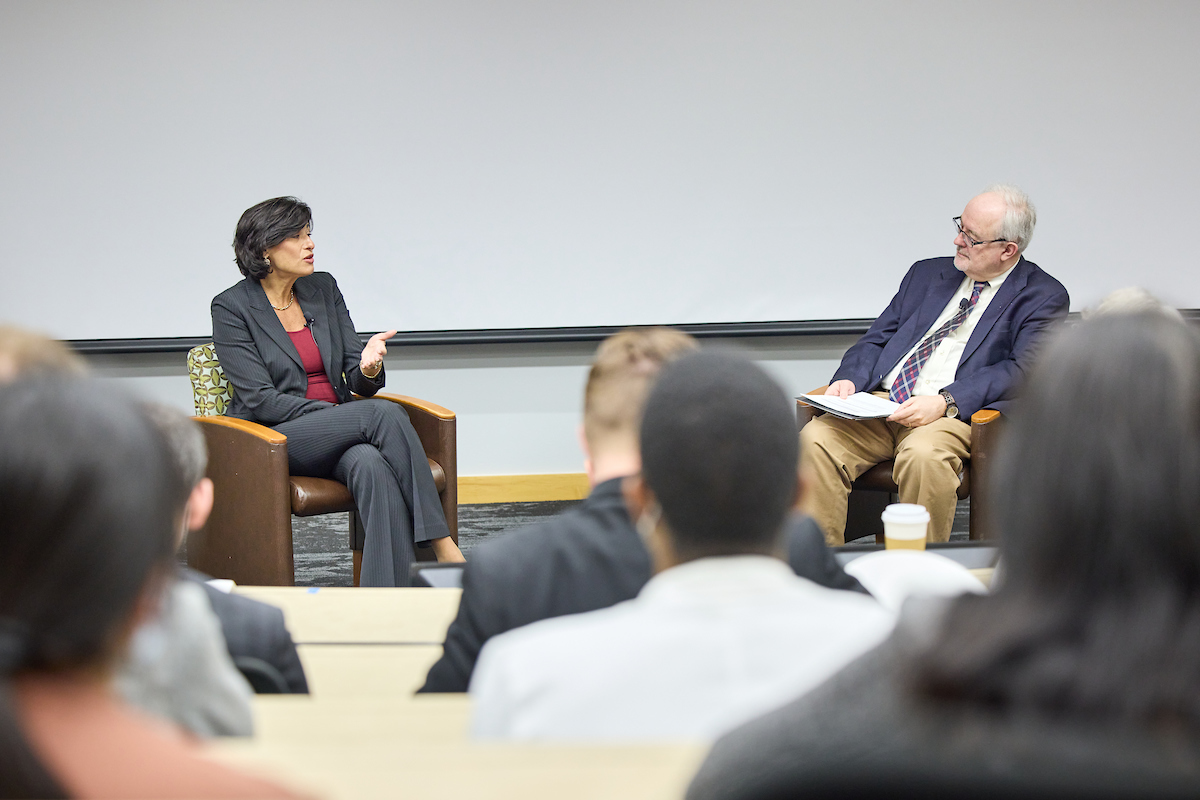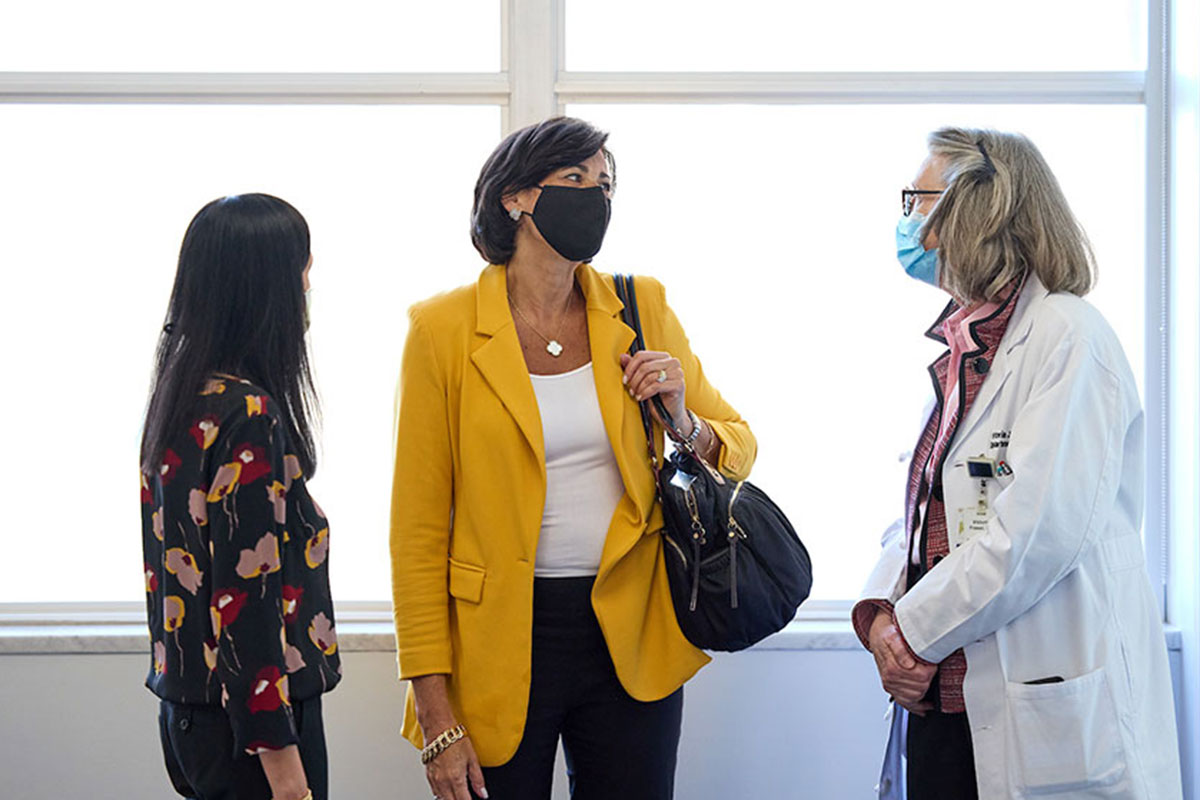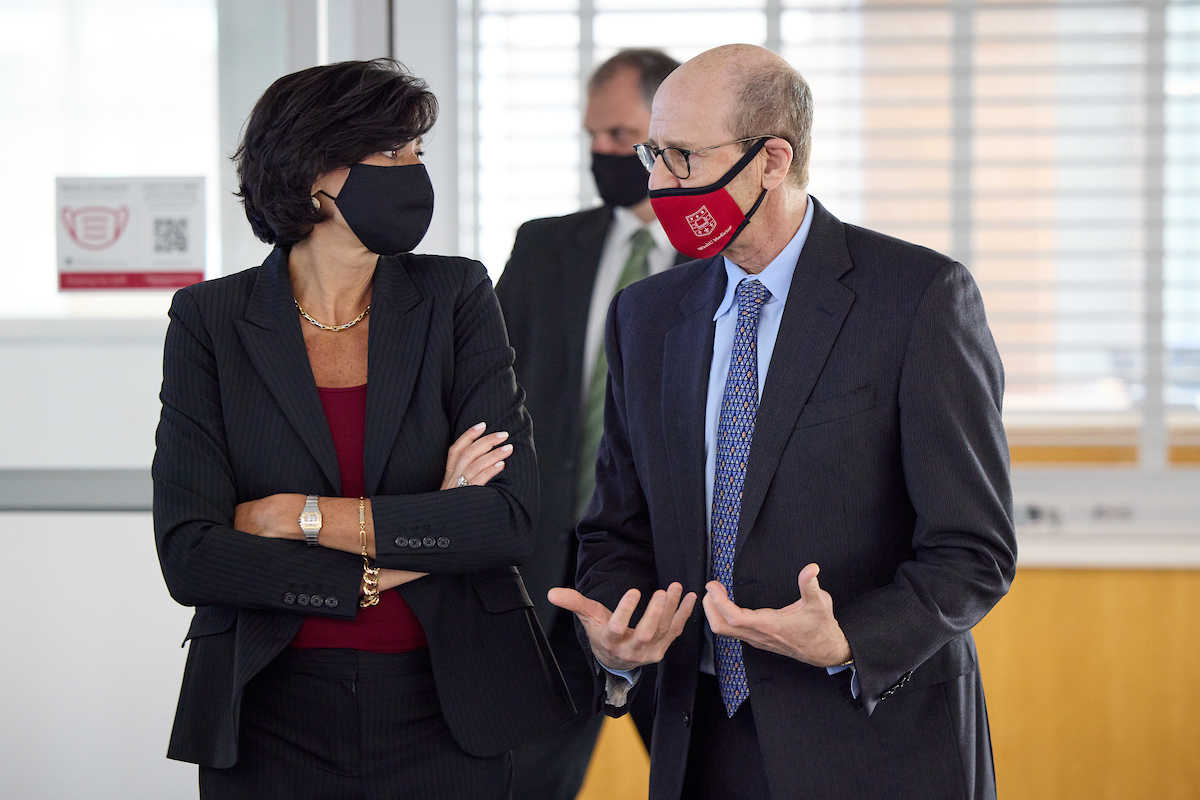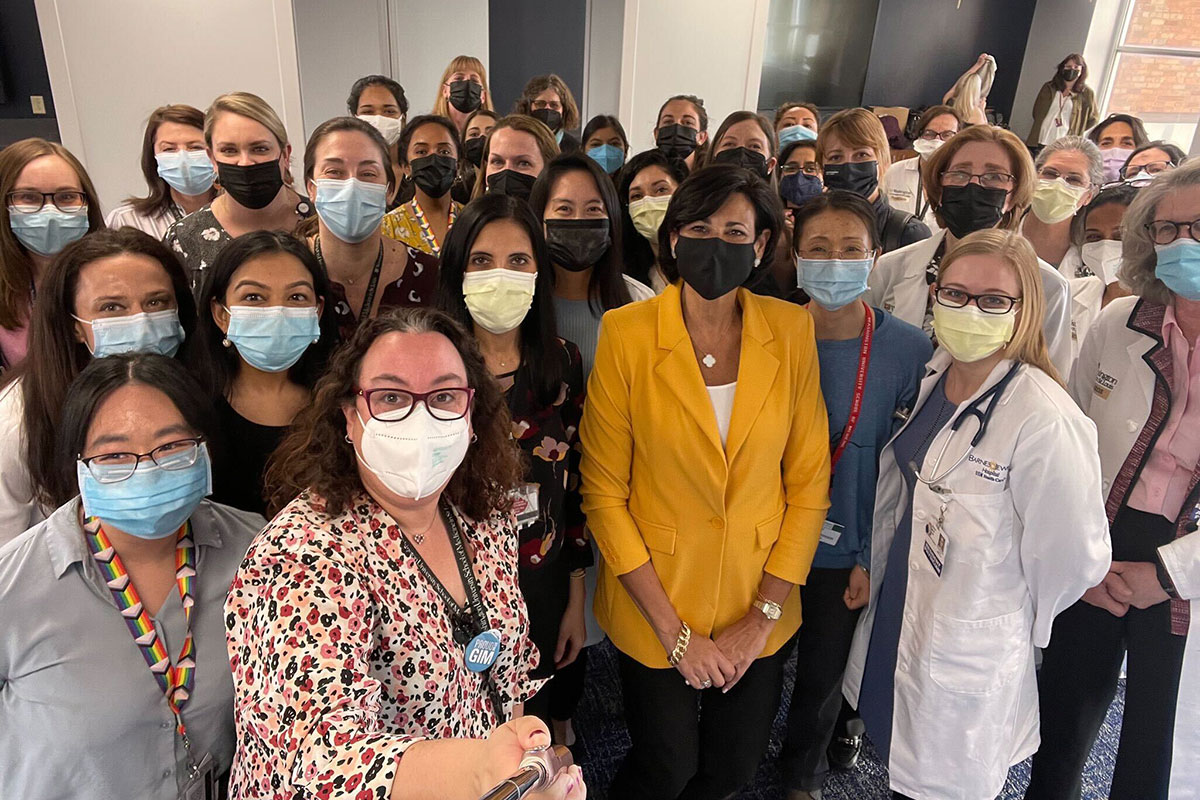Rochelle P. Walensky, MD, the director of the Centers for Disease Control and Prevention (CDC), visited Washington University School of Medicine last week to discuss lessons learned from the COVID-19 pandemic. As part of the Department of Medicine’s weekly Grand Rounds series, she sat down March 3 with William G. Powderly, MD, the J. William Campbell Professor of Medicine and co-director of the Division of Infectious Diseases for a conversation that highlighted the pandemic’s success stories and challenges. The event was livestreamed to the Medical Campus community and the public. A small group of infectious diseases physicians, fellows and residents attended in person.
A day earlier, she also met with women trainees and faculty in the Department of Medicine to discuss mentorship, leadership and professional development. The discussion was led by Rakhee K. Bhayani, MD, an associate professor of medicine and the director of the Forum for Women in Medicine, a group that supports the professional development of women trainees in the Department of Medicine.
Walensky, a Washington University alum, was invited to the Medical Campus as the Gerald Medoff Visiting Professor in the Department of Medicine. Medoff, who died in 2019, was a beloved, compassionate infectious diseases physician and former director of the Division of Infectious Diseases at the School of Medicine.
As part of the Grand Rounds conversation with Powderly, Walensky answered questions about the COVID-19 pandemic. An internationally recognized expert on HIV/AIDS, she noted that her experiences with that earlier epidemic influenced her thinking around the COVID-19 pandemic. The AIDS epidemic showed that infectious diseases weigh more heavily on some communities than others, and that this unequal burden is rooted in social inequities, she said.
“We learned so much from HIV in terms of who gets care and access to care,” Walensky said. “We in infectious diseases have long known that infectious diseases go not to places of wealth but to places of poverty and places that lack access to care. The first people who brought SARS-CoV-2 to the United States were people who traveled on airplanes, people who traveled on cruise ships, people who had the resources to do those sorts of things. But then it became a disease of the more vulnerable.”
Her experience with HIV/AIDS is part of the reason why she has prioritized addressing health inequity as CDC director, Walensky said.
“I’m proud to say that in April, just weeks after coming to the CDC, we at CDC declared racism a serious public health threat,” Walensky said. “We have spent a lot of time documenting the problem in health equity. You don’t have to look very far to see it’s true in maternal mortality, it’s true in chronic diseases, it’s true in access to care, it’s all true. And I said, ‘I don’t want to document the problem anymore. I want to implement things that will fix the problem.’”
While noting that the COVID-19 pandemic has exposed frailties in the nation’s public health infrastructure that must be addressed, Walensky lauded public health workers at all levels for their success in distributing 550 million doses of COVID-19 vaccines nationwide last year. She also praised the CDC’s achievements in modernizing data collection and speeding up the process of making public health data public.
One of the most challenging parts of managing the pandemic, Walensky said, has been communicating to the public how science works and how public health decisions are made.
“I have frequently said, ‘Science is the foundation of everything we do,’” Walensky said. “That is entirely true. But I think the public heard that as ‘Science is foolproof, science is black and white. We get the answer and then we make the decision based on the answer.’ But the truth is science is gray. And science is not always immediate. Sometimes it takes months and years to actually find out the answer, and you have to make decisions before you have that answer. We might be faulted for not making exactly the right decision, in the moment. I’m okay with that. But I don’t want to be faulted for not making a decision. Because not making a decision in and of itself is a decision.”
Walensky and Powderly, who also is the associate dean for clinical and translational research, the Larry J. Shapiro Director of the Institute for Public Health and the director of the Institute of Clinical and Translational Sciences, were joined by Victoria J. Fraser, MD, the Adolphus Busch Professor and head of the Department of Medicine. A recording of the conversation is available on the School of Medicine’s YouTube channel and the Department of Medicine’s Grand Rounds website.
The day before her discussion with Powderly, Walensky met with women residents, fellows, and faculty in the Department of Medicine to discuss her personal and professional journey in science and medicine. In the hourlong conversation, Walensky emphasized the importance of taking strategic risks when opportunities arise and cultivating a diverse group of mentors who can provide insight and guidance from a variety of perspectives. When asked what advice she’d give her younger self, Walensky laughed.
“My younger self had no idea I’d be doing what I’m doing today,” she said. “I’d tell my younger self to enjoy the ride. Everyone needs two CVs: One for the things you did that worked, and one for the things you did that didn’t work. Because you learn just as much from the things that didn’t work. What we do as physicians is such a gift, such a blessing. I’m still enjoying the ride. Although the ride is a bit bumpy these days.”




Source: Read Full Article
